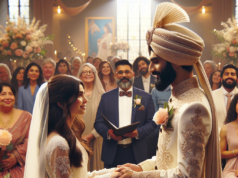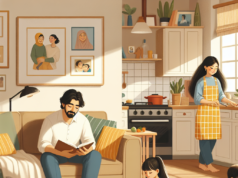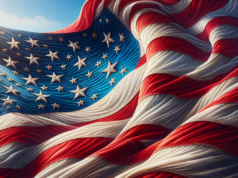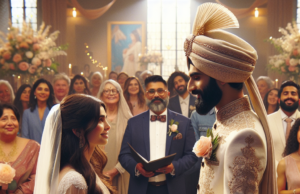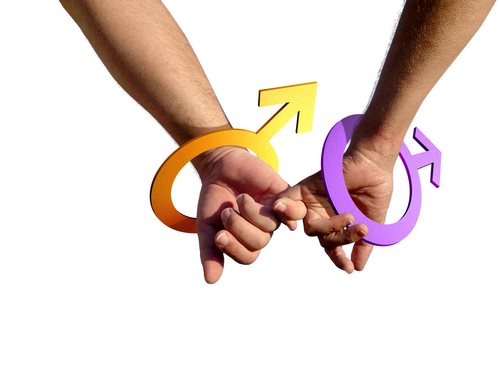
Gay Marriage: Governor Chris Christie Veto Challenged by New Jersey Democrats
In 2013, Governor Chris Christie vetoed a bill that would allow same-sex couples to marry in New Jersey. The move was met with disappointment from the LGBTQ community and their allies, who saw it as a step back for equality in the state. However, the fight for gay marriage in New Jersey did not end there. In fact, it was just beginning.
Background on Same-Sex Marriage in New Jersey
Before we delve deeper into the veto and its aftermath, let’s take a brief look at the history of same-sex marriage in New Jersey. In 2006, the state passed a law that defined marriage as between a man and a woman. This led to a lawsuit by several same-sex couples who argued that denying them the right to marry violated their rights under the state constitution.
The case, known as Lewis v. Harris, went all the way to the New Jersey Supreme Court, which in 2006 ruled that same-sex couples were entitled to the same rights and benefits as opposite-sex couples, but stopped short of allowing them to marry. The court gave the state legislature 180 days to come up with a solution.
In response, the legislature passed the Civil Union Act, which gave same-sex couples many of the same legal rights and obligations as marriage, but stopped short of calling it marriage. This was seen as a compromise at the time, but it quickly became apparent that civil unions were not equal to marriage in terms of societal recognition and public perception.
Christie’s Veto
Fast forward to 2012, when Governor Christie was asked about the issue of same-sex marriage in a town hall meeting. He stated that he believed marriage should be between a man and a woman, and that he would veto any bill that attempted to legalize same-sex marriage in the state.
A year later, in February 2013, the New Jersey legislature passed a bill that would allow same-sex couples to marry. The bill made it to Governor Christie’s desk, and he carried out his promise by vetoing it. In his veto message, Christie stated that he believed the issue should be put to a statewide vote, rather than decided by a handful of legislators and judges.
Democrats Challenge the Veto
Not long after Christie’s veto, Democrats in the state legislature began to challenge it. They argued that the veto was unconstitutional because it denied same-sex couples the equal protection of the law, as guaranteed by the state constitution. They also pointed out that the state Supreme Court had already ruled in 2006 that same-sex couples were entitled to the same rights and benefits as opposite-sex couples.
In September 2013, the case made its way to a state court judge in Mercer County. The judge, Mary Jacobson, ruled that the state must allow same-sex couples to marry, citing the 2006 Supreme Court ruling and the U.S. Supreme Court’s decision in United States v. Windsor, which struck down a portion of the federal Defense of Marriage Act that defined marriage as between a man and a woman.
Judge Jacobson’s ruling was stayed pending appeal, meaning that same-sex couples could not immediately marry in the state. But the ruling was still a major victory for the LGBTQ community, and put pressure on Governor Christie to drop the state’s appeal and allow same-sex marriage.
Christie Rethinks His Position
Following Judge Jacobson’s ruling, Governor Christie announced that he would no longer fight the court’s decision and would allow same-sex marriage to proceed in the state. In a statement, he said that he had asked the state’s Attorney General to withdraw the appeal, and that the state would begin to recognize same-sex marriages immediately.
“I’ve always believed that marriage is between one man and one woman,” he said. “But in the end, this is just something that we need to put behind us and move on.”
The decision was seen as a major turning point in the fight for equality in New Jersey, and a sign that the tides were turning nationally. It also put Christie in a difficult position, as he was widely expected to run for president in 2016 and was seen by many as a potential Republican nominee. His change of heart on same-sex marriage was seen as going against the party line, which still largely opposes marriage equality.
The Future of Gay Marriage in New Jersey
Since the legalization of gay marriage in 2013, many same-sex couples in New Jersey have tied the knot. The state has also seen a shift in public opinion, with polls showing increasing support for marriage equality. As of 2017, same-sex couples can marry in every state, but the fight for full equality is far from over.
In fact, the Trump administration has taken steps to roll back protections for LGBTQ individuals, including rescinding guidance from the Obama-era that protected transgender students in public schools. The administration has also said it would support a federal “religious freedom” law that could allow individuals and businesses to discriminate against LGBTQ people on the basis of their religious beliefs.
Despite these setbacks, the LGBTQ community and their allies continue to fight for equality at the state and national levels. In New Jersey, lawmakers have introduced bills that would ban conversion therapy, which seeks to change a person’s sexual orientation or gender identity, and expand the rights of transgender individuals.
As for Governor Christie, his views on same-sex marriage may have changed, but his lasting legacy will be one of opposition and veto. While he eventually allowed same-sex marriage in the state, it was only after years of fighting by activists and Democratic lawmakers. The fight for equality may be ongoing, but every victory brings us one step closer to a more just society for all.
Democratic leaders in the New Jersey Legislature agreed to attempt to override Republican Governor Chris Chrstie’s gay marriage veto. If the unanimous veto fails, the state’s Democrats are open—for the first time—to place question in front of voters in November.
Assemblyman Reed Gusciora of Trenton, one of two gay state lawmakers, said Democratic leaders in the Assembly and Senate agreed to renew their efforts for legalizing gay marriage during a meeting on Thursday. The strategy is expected to include putting the question to the state’s voters in November with Christie on the ballot. Governor Christie, who is Catholic, opposes same-sex marriage.
The November ballot already is set to include a question on whether New Jersey should raise its minimum wage and Senator Barbara Buono, who supports both the minimum wage increase and gay marriage, at the top of ballot opposing Christie.
“This looks like a perfect storm to spark the Democratic base,” Gusciora opined.
Governor Christie, who vetoed the gay marriage bill last year, has urged lawmakers to pose the question to the public. “I am comfortable with the people of New Jersey making the decision,” Christie said Tuesday in Lavallette. “If they would like to put it on the ballot, then put it on the ballot.”
Senate President Stephen Sweeney, a loyal Democrat who was previously opposed to gay marriage but has since come to regret his stance and now supports it, previously refused to place the question in front of voters. Sweeney held same-sex marriage as a civil rights issue and one that does not belong on the ballot; however, with the help of Assembly Democratic Leader Lou Greenwald, the Senate President recognized the difficulty of overriding the Governor and agreed to keep their options open.
This maneuver displeases Troy Stevenson, who recently took over as President of Garden State Equality, the state’s most prominent gay-rights organization. Stevenson, who previously worked in Maine in 2009 on the losing end of a gay marriage referendum, believes the effort to secure gay marriage equality via a ballot initiative is expensive, divisive and particularly rough on families headed by same-sex couples.
The Democratic Legislature has never found success in overriding a Christie veto. To do so, they would need two-thirds majority in both the Assembly and Senate, which would require some Republicans to go against their governor.

